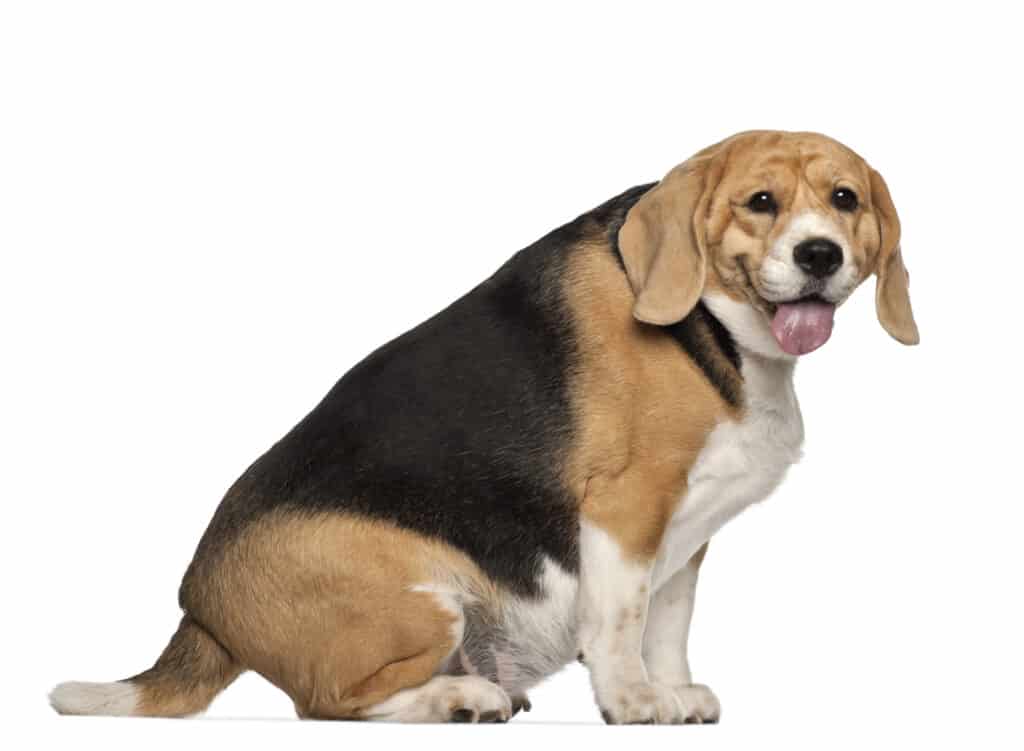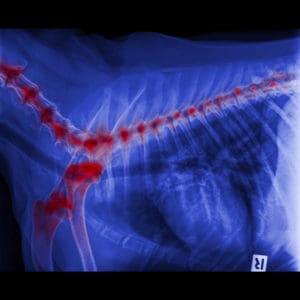 While obesity is a common problem among canines, there are also dogs that struggle with the complete opposite. It seems as though there are so many obvious options for dogs requiring weight loss, but it can be a bit more challenging to determine what to feed your pup when they need to put on some extra pounds. Luckily there are food options that can help your dog gain weight, and do so in a safe way. In this article we will discuss how you can know that your dog is underweight, and some helpful tips on how to help them put on some extra pounds.
While obesity is a common problem among canines, there are also dogs that struggle with the complete opposite. It seems as though there are so many obvious options for dogs requiring weight loss, but it can be a bit more challenging to determine what to feed your pup when they need to put on some extra pounds. Luckily there are food options that can help your dog gain weight, and do so in a safe way. In this article we will discuss how you can know that your dog is underweight, and some helpful tips on how to help them put on some extra pounds.
If you are in a rush, the best dog food for weight gain that we trust include:
Quick Review: Top-3 Weight Gain Dog Food
How do you know if your dog is underweight?
A dog’s weight can affect their overall health in a number of ways. Just like in humans, a healthy body score can affect their energy, their heart health, and their susceptibility to other health complications.
Some signs of an underweight dog include:
- Clearly visible ribs, hips, spine or shoulders.
- Dull and lackluster coat.
- Decreased energy level.
- Depression.
- Obvious muscle deterioration.
While some breeds are known to be thinner than others, the above symptoms should not be seen in even the leanest of dogs. Below is a photo that can help to show you an ideal body score in a dog.
What causes a dog to be underweight?
Weight loss in a dog does not just happen on it’s own. When a dog is underweight, there is always a cause. Weight loss itself is not a disease, but a symptom.
If you notice that your dog is underweight, it’s best to have them seen by your veterinarian to rule out any major medical concerns. Once you’ve discovered the possible cause, you can then begin to alter their diet for weight gain.
Some reasons a dog could be underweight include:
- Intestinal parasites
- Poor quality food
- Not consuming enough food
- Diabetes
- Thyroid conditions
- Dental pain
- Gastrointestinal disease
- Cancer
- Kidney disease
How can you safely put weight on your dog?
 When it comes to helping your dog put on some extra weight, there is a healthy and unhealthy way to do this. While many people just associate weight gain with extra calories, this is not the only factor.
When it comes to helping your dog put on some extra weight, there is a healthy and unhealthy way to do this. While many people just associate weight gain with extra calories, this is not the only factor.
Picture a body builder that is trying to bulk up for an event. Sure, they could eat endless amounts of fast food and unhealthy treats to put on weight, but that would result in an unhealthy weight gain. Instead, they turn to nutritious fats and well rounded calories in an effort to gain weight in a healthy fashion.
This is no different for your dog. Weight gain should in a dog should be a result of a surplus of nutritious calories.
Some healthy ways to help your dog gain weight include:
- Increasing the frequency in which you feed your dog.
- Provide him with high calorie treats or supplements that are made specifically for weight gain.
- Switch them to a higher calorie food with more protein.
- Work closely with your vet to establish a proper weight gain protocol.
What to look for in a quality food for weight gain?
When choosing a high calorie food, it can be difficult to know which options are actually safe for your dog’s weight gain process. Some factors to look for in a quality food for weight gain include:
- High quality protein: Protein is essential in helping your dog gain muscle mass. Make sure that your choice of food contains at least 30% of a high quality animal protein such as poultry, beef, lamb, or fish.
- Natural ingredients: Your dog’s calories should come from a variety of high quality natural ingredients. Natural ingredients are more nutritious and help to nourish your pup’s body, and help them put on lean mass.
- Calories: If a dog needs to put on weight, you will need to increase their daily calorie intake. Since the average dog food contains about 400 calories per cup, you should consider a food with 450 calories per cup or more.
Brands With The Best Dog Food For Weight Gain in
With the task of finding a healthy way to help your furry companion put on weight, it’s important to find a quality brand that you can trust. We put together a list of brands that offer a food for weight gain, that delivers nutritious yet high calorie options.
Our favorite brands for the best dog food for weight gain include:
- Bully Max: Offers a high calorie and high protein food that is designed specifically for weight gain.
- Nature’s Logic: Offers a high calorie food that is packed with digestive enzymes that promote weight gain and gut health.
- Blue Buffalo: Offers a food that is packed with high quality protein for ideal weight gain.
- Purina Pro Plan: Offers a high calorie food that is tasty and nutritious.
- Crave: Offers a protein packed food that helps your pup put on extra weight.
Now that we’ve revealed the brands that we trust, we’ll dive into the details of each specific food. With a list of tasty choices to choose from, there’s no doubt that your pup will be on the road to healthy weight gain.
The Best Dog Food For Weight Gain
- Bully Max High Performance
Pros
- High in calories at 535 calories per cup.
- Packed with high quality protein (chicken).
- Rich in fatty acids and antioxidants for joint and skin health.
- Designed specifically for weight gain.
Cons
- Due to the high quality ingredients, it is more expensive than most other dog food brands.
- It does contain chicken, so dogs with poultry allergies cannot consume.
- Nature’s Logic Dry Food
Pros
- Contains 551 calories per cup of food.
- Packed with fruits and veggies that offer beneficial vitamins and minerals.
- Contains digestive enzymes to promote gut health.
Cons
- Chicken is the main source of protein in this food, meaning it shouldn’t be consumed by dogs with allergies to poultry.
- Blue Buffalo Wilderness Duck
Pros
- Contains 416 calories per cup of food.
- Offers high quality protein (34% protein)
- Contains probiotics and fiber for healthy digestion.
Cons
- While this food is high in protein, it does have a lower calorie count than some of the other foods on this list.
- Purina Pro Plan Sport
Pros
- Contains 475 calories per cup.
- Contains glucosamine and amino acids that promote muscle health.
- Chicken is listed as the first ingredient.
Cons
- Though it does have a high protein and fat ratio, it is lower in calories than some of the other options on this list.
- Crave Grain Free Dog Food
Pros
- Contains 460 calories per cup.
- Chelated minerals to aid in nutrient absorption.
- Quality protein from chicken and pork.
- High in digestible fibers for optimal digestive health.
Cons
- Since it does contain chicken, it may not be ideal for dogs with poultry allergies.
FAQ
Should dogs lose weight as they age?
When dogs lose weight as they age, it’s usually the result of a change in appetite, a deterioration in health, or an underlying medical condition. Weight loss is a symptom, not a disease. If your older dog is losing weight, it’s always best to see your veterinarian to rule out any serious medical conditions.
Should i give my dog table food to help them gain weight?
No matter what, it is never a good idea to give your dog table scraps or fatty human food in an effort to help them gain weight. This can cause gastrointestinal upset, which could result in dehydration, weight loss, and a variety of other medical complications.
Last update on 2026-02-11 / Affiliate links / Images from Amazon Product Advertising API




